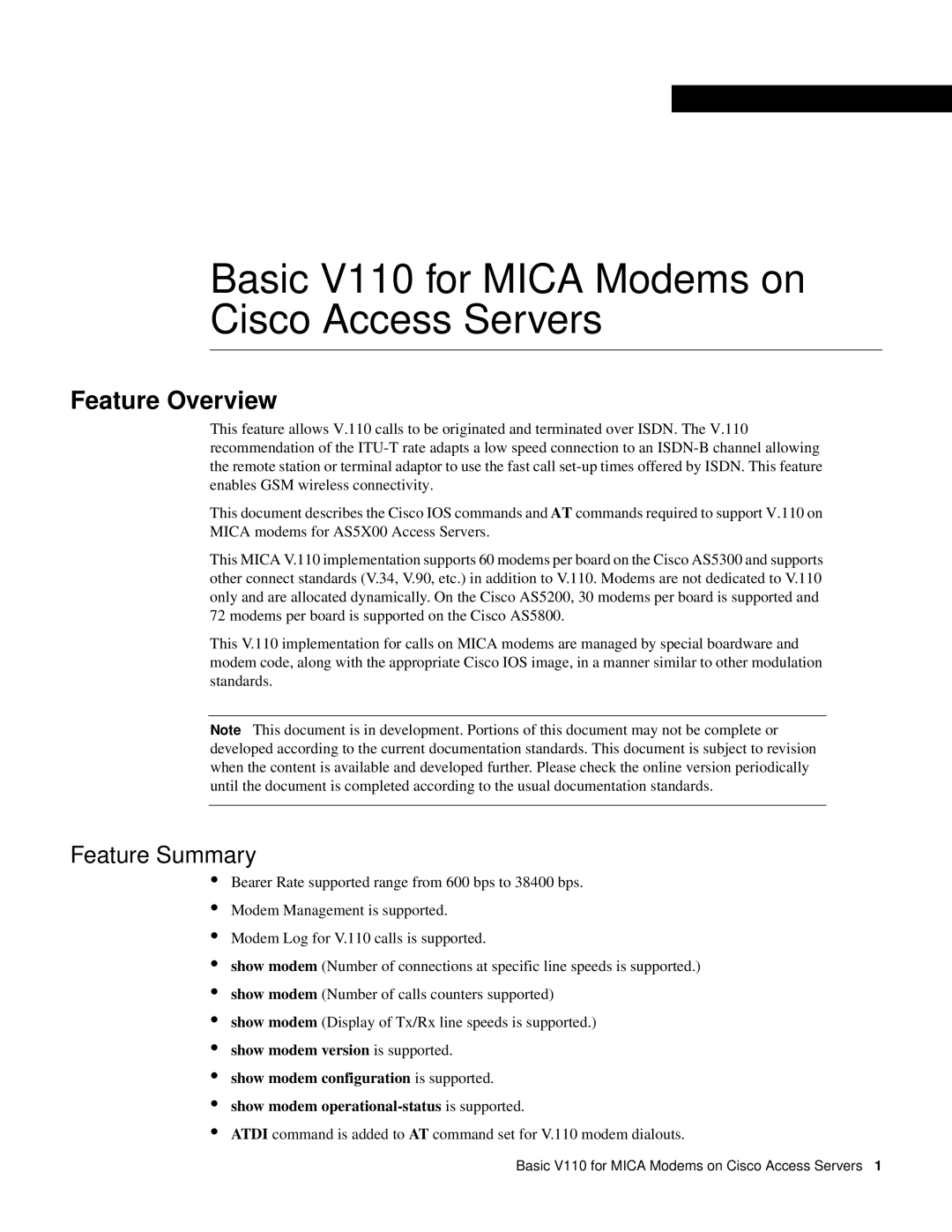
Basic V110 for MICA Modems on Cisco Access Servers
Feature Overview
This feature allows V.110 calls to be originated and terminated over ISDN. The V.110 recommendation of the
This document describes the Cisco IOS commands and AT commands required to support V.110 on MICA modems for AS5X00 Access Servers.
This MICA V.110 implementation supports 60 modems per board on the Cisco AS5300 and supports other connect standards (V.34, V.90, etc.) in addition to V.110. Modems are not dedicated to V.110 only and are allocated dynamically. On the Cisco AS5200, 30 modems per board is supported and 72 modems per board is supported on the Cisco AS5800.
This V.110 implementation for calls on MICA modems are managed by special boardware and modem code, along with the appropriate Cisco IOS image, in a manner similar to other modulation standards.
Note This document is in development. Portions of this document may not be complete or developed according to the current documentation standards. This document is subject to revision when the content is available and developed further. Please check the online version periodically until the document is completed according to the usual documentation standards.
Feature Summary
•Bearer Rate supported range from 600 bps to 38400 bps.
•
•
•
•
•
•
•
•
•
Modem Management is supported.
Modem Log for V.110 calls is supported.
show modem (Number of connections at specific line speeds is supported.) show modem (Number of calls counters supported)
show modem (Display of Tx/Rx line speeds is supported.) show modem version is supported.
show modem configuration is supported. show modem
ATDI command is added to AT command set for V.110 modem dialouts.
Basic V110 for MICA Modems on Cisco Access Servers 1
